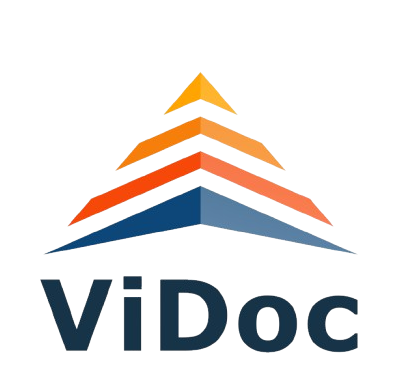
Organizations that use paper-based documents in financial accounting face several challenges. Here are specific challenges they may encounter, along with how digital transformation with document management can help streamline financial accounting processes such as invoicing, audits, tax compliance, filing of returns, computations, and gain a competitive advantage. Additionally, I’ll explain how approval workflows can be beneficial:
Manual and Time-Consuming Processes: Paper-based financial accounting involves manual tasks, such as manual data entry, physical filing, and document handling. These processes are time-consuming, prone to errors, and inefficient. Digital transformation with document management automates these tasks, reducing manual effort, improving accuracy, and saving time in activities like generating invoices, reconciling accounts, or preparing financial statements.
Document Handling and Storage: Paper documents require physical storage space, are prone to loss, damage, or misplacement, and can be challenging to organize and retrieve. Digital document management eliminates the need for physical storage, allowing electronic storage, retrieval, and organization of financial documents. It improves searchability, ensures easy access, and eliminates the risk of losing important documents.
Compliance and Audit Challenges: Compliance with financial regulations, audit requirements, and tax filings is crucial for organizations. Paper-based systems make compliance, audits, and tax-related processes complex, time-consuming, and error-prone. Digital transformation with document management ensures accurate record keeping, provides easy access to financial documents during audits or tax assessments, and facilitates efficient compliance with regulations, reducing the risk of non-compliance and penalties.
Tax Compliance and Filing: Paper-based systems can make tax compliance and filing processes laborious, error-prone, and difficult to manage. Digital transformation simplifies tax-related tasks by automating tax computations, integrating with tax software, and maintaining accurate digital records. It streamlines the preparation, review, and filing of tax returns, ensuring accurate calculations, reducing errors, and facilitating timely compliance with tax regulations.
Financial Reporting and Analysis: Generating financial reports and performing data analysis can be challenging with paper-based systems. Digital document management provides real-time data analysis, financial reporting tools, and integration with accounting software. It enables organizations to generate accurate financial reports, perform advanced analytics, and gain valuable insights into financial performance, enabling informed decision-making and strategic planning.
Competitive Advantage through Financial Efficiency: By embracing digital transformation in financial accounting, organizations gain a competitive advantage through improved financial efficiency. Streamlined processes, automation, accurate data, and timely reporting allow organizations to make informed financial decisions, optimize resource allocation, and respond quickly to market changes. This improves overall financial performance, reduces costs, and positions the organization for growth and profitability.
Approval Workflows: Approval workflows are an essential component of digital document management in financial accounting. They enable organizations to define and automate approval processes for financial transactions, invoices, expense reports, or budget approvals. Approval workflows ensure proper authorization, eliminate manual routing and follow-up, reduce delays, and enhance process transparency and accountability. They provide better control over financial transactions, improve efficiency, and minimize the risk of errors or fraud.
By implementing digital transformation with document management, organizations can streamline financial accounting processes, improve accuracy, enhance compliance with audits and tax requirements, simplify tax filing, generate accurate financial reports, gain valuable insights, and achieve a competitive advantage. Approval workflows further enhance efficiency, control, and transparency in financial transactions, contributing to overall financial management effectiveness.


